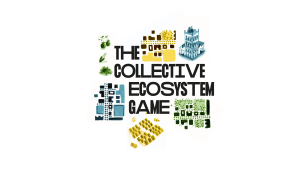Discover the Collective Ecosystem Game: A New Tool for Learning and Action on Urban Development and Environmental Sustainability
How do the ways we design our cities and landscapes affect the environment we live in—and the benefits we receive from nature? What would a truly participatory urban transformation look like if citizens could experience the consequences of their planning choices in real time?

As part of the Horizon 2020 project PHOENIX – The Rise of Citizen Voices for a Greener Europe, researchers at the University of Florence have developed an innovative board game designed to explore these very questions. Introducing the Collective Ecosystem Game: a participatory tool that combines gamification, urban development scenarios, and environmental education to engage citizens, students, policymakers, and facilitators alike in a meaningful learning experience.
A Game About Land Use, Participation, and Nature’s Contributions
The Collective Ecosystem Game is more than just a game. It’s a learning environment that brings together up to 18 players in a collaborative effort to design the future of a shared urban and peri-urban territory. Drawing on the concept of Nature’s Contributions to People (NCP)—the benefits that humans derive from ecosystems such as food, energy, air quality, and climate regulation—the game simulates the complex trade-offs and cascading effects that result from land use decisions.
Players are divided into teams, each representing a different urban development scenario:
-
Smart City, focusing on technological solutions within current growth paradigms;
-
Post-Growth City, which prioritizes behavioral and lifestyle change over expansion;
-
De-Growth City, emphasizing sustainability, localism, and the reduction of human pressure on ecosystems.
Each scenario embodies a distinct vision for the future, prompting players to reflect on the societal values, risks, and opportunities embedded in our choices.
How the Game Works
After selecting their scenario, teams engage in five rounds of strategic decision-making. In each round, they choose one intervention card that proposes a land use change or policy action. These decisions affect the provision level of various NCPs represented on a shared board divided into 14 components (from habitat creation to energy and cultural identity).
Players must negotiate between short-term gains and long-term ecological impacts, while competing to maximize the resilience and sustainability of their territory. As the board evolves, so do the players’ understandings of ecological interdependencies and social priorities.
The gameplay ends with a debriefing session, allowing participants to reflect critically on the implications of their choices. The winning team is the one that most effectively enhances the territory’s ability to deliver high levels of ecosystem services—without compromising environmental balance.
A Participatory and Educational Tool for All Contexts
The Collective Ecosystem Game has been successfully used in workshops, academic settings, participatory planning processes, and co-creation labs. It is particularly valuable in contexts where multiple stakeholders need to engage in shared dialogue around complex environmental issues.
Designed to be accessible yet thought-provoking, the game comes with instructions for facilitators, a scoring system, and a glossary of key concepts. It is suitable for urban planners, environmental educators, citizen assemblies, municipalities, researchers, and NGOs looking to build collective awareness and decision-making capacities.
Developed Within the PHOENIX Project
This tool is one of many developed under the PHOENIX project, which promotes new democratic and participatory approaches to the green transition across Europe. By experimenting with deliberation, collective intelligence, and co-creation, PHOENIX explores how civic voices can shape just and sustainable futures.
The Collective Ecosystem Game was developed by Cassandra Fontana, Maddalena Rossi, Elena Tarsi, Andrea Testi, and Iacopo Zetti, with visual and graphic design by Simone Spellucci and Vanessa Staccioli.
Download the Game and Start Playing
Whether you are a facilitator, a teacher, or an activist, this game offers an engaging and powerful method to explore how urban and environmental policies intersect. It helps translate abstract ecological principles into concrete actions—and gives everyone a seat at the table.
👉 Download the full game kit here
Join us in transforming the way we learn, play, and plan for a greener Europe.
Follow us on: